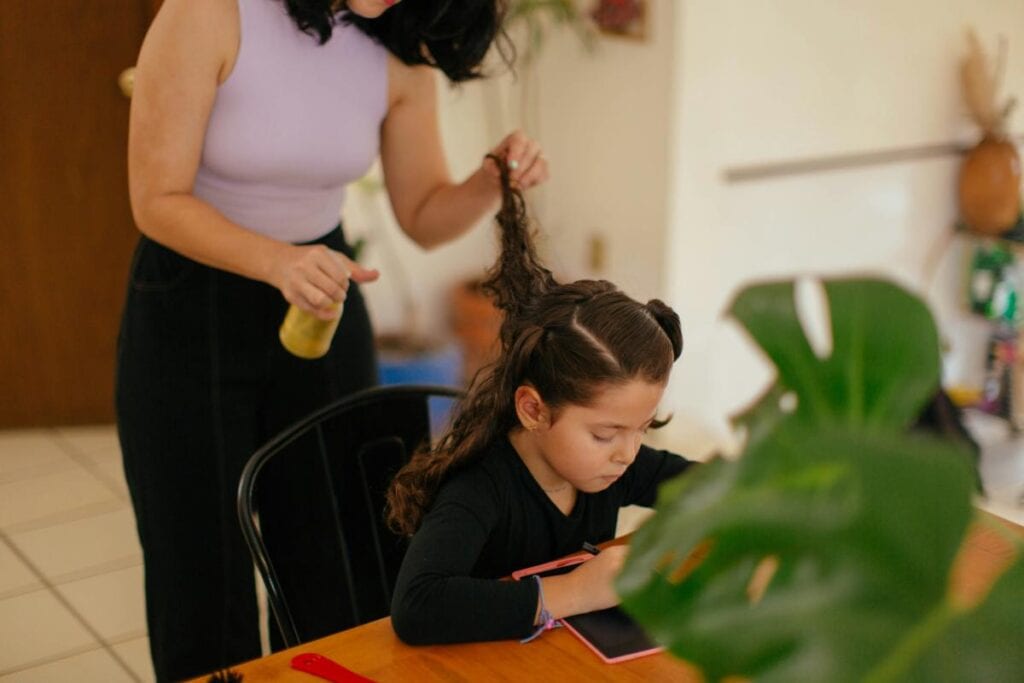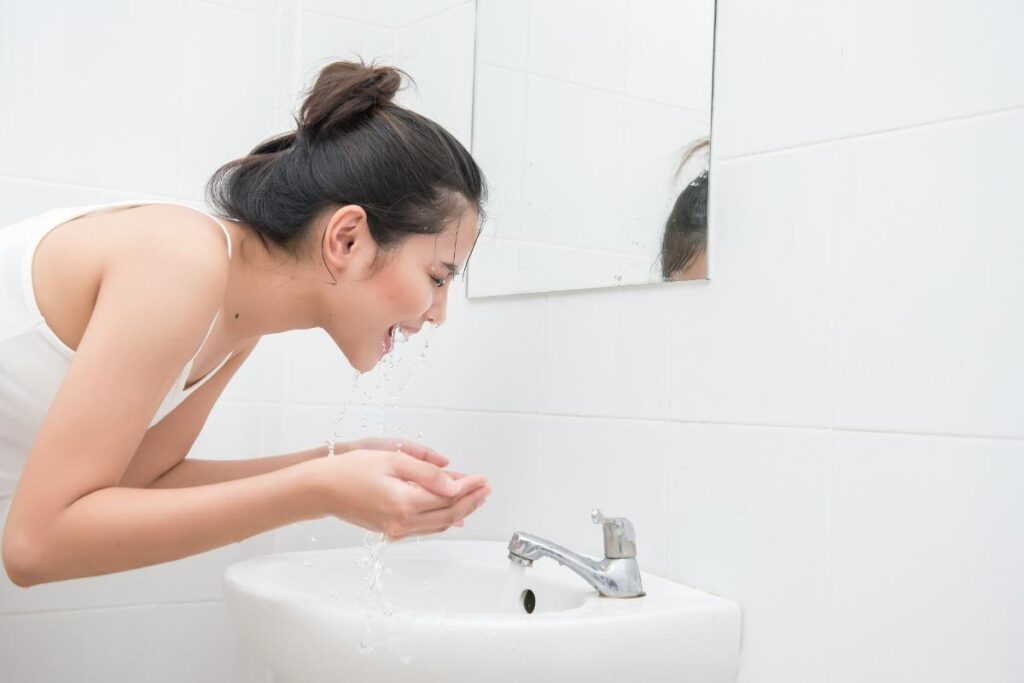
When our children reach the double digits, everything seems to change overnight. Voices crack, growth spurts arrive, and that unmistakable aroma fills the car. If you are navigating this new phase, you are not alone. Establishing good hygiene habits is about more than smelling fresh. It helps build self-esteem and supports lifelong wellness.
Navigating the teen years is a journey of change, and for many, self-esteem is closely linked to this transition. While establishing good hygiene is key, it’s also important to remember the emotional landscape.
According to recent data, approximately 3 in 5 teens (58.5%) feel they receive the social and emotional support they need.
This guide breaks down practical, mom-approved steps to help them feel confident. Establishing these routines is not just about appearance; it’s a foundational life skill that supports overall health, as data on youth health policies shows.
Tip 1: Master the Daily Fundamentals
Building a solid foundation is the most important step. This involves creating a simple, repeatable routine that covers the non-negotiables of personal care. Starting early and breaking it down by age can make the process feel less overwhelming for everyone.
Age-by-Age Snapshot: Skills to Introduce
Grooming needs evolve as teens grow. Here’s a simple timeline for introducing new skills:
- 10–12 Years: Focus on the basics. This is the time to solidify a daily shower routine and reinforce twice-daily toothbrushing. Introduce easy-to-use floss picks and a first deodorant. An aluminum-free option is great, as the main goal is simply establishing the habit of daily use.
- 13–15 Years: As hormones shift, introduce Skincare 101 with a gentle cleanser, a lightweight moisturizer, and daily SPF. For girls, this is the time for clear instruction on period hygiene. For boys and girls, you can cover beginner shaving tips, like always using a clean razor and short strokes.
- 16–18 Years: Now, teens can take on more responsibility and refine their routines. Teach them about heat tool safety for hair, protective hairstyles, and fragrance etiquette. When they are ready for a scent, explore resources like Sensa Beauty’s expertly curated best colognes for teen boys. This is also an ideal time for them to take ownership of their laundry.
Daily Hygiene Explained
Breaking down each task makes it easier for teens to remember.
- Shower Smarts: Most teens should shower daily, especially after sports. Teach a top-to-bottom routine: shampoo the scalp, apply conditioner to the ends, use a face wash, and finish with body wash, focusing on underarms, the groin area, and feet.
- Deodorant Do’s & Don’ts: Apply to completely dry underarms right after showering for maximum effectiveness. Don’t skip it, even on rest days. Odor-causing bacteria build up quickly, especially after a long sports practice.
- Dental Care: The two-minute rule for brushing is still the standard. An electric toothbrush with a built-in timer can be a huge help. Floss picks are a game-changer for teens with braces, making a tricky task much simpler.
- Period Care: Create a discreet basket in the bathroom stocked with pads, tampons, or a menstrual cup. Teach your teen to always double-bag disposables in wrappers or toilet paper and never flush them.
- Shaving Basics: For boys, shaving after a warm shower softens hair and skin. For girls, shaving with downward strokes on the legs first is the gentlest. Always finish with a fragrance-free lotion to prevent razor bumps and replace blades every 5-7 uses.
| Pro Tip: Focus on a nonnegotiable five-minute foundation, which is shower, deodorant, and brushing teeth. Consistency over complexity is the key to building habits that stick without turning into daily battles. |
Tip 2: Navigate Skincare and Hair Care
As hormones fluctuate, skin and hair can become major sources of stress for teenagers. A simple, consistent routine can prevent many common issues and boost their confidence significantly.
Skincare 101: A Dermatologist-Approved Starter Routine
A simple three-step approach is perfect for teen skin:
- Cleanser: Look for a gentle, non-comedogenic (won’t clog pores), and fragrance-free formula to wash the face morning and night.
- Moisturizer: A lightweight, oil-free moisturizer is perfect for the morning. If their skin feels dry, a richer gel formula can be used at night.
- Sunscreen: Using an SPF of 30 or higher every single day, rain or shine, is the single best thing they can do for their skin’s long-term health.
Acne Myths Debunked
- Myth: Toothpaste clears zits overnight. Truth: It contains harsh ingredients that can over-dry the skin, leading to more irritation and even scarring.
- Myth: Scrubbing your face hard prevents breakouts. Truth: Harsh scrubbing damages the skin barrier and can make acne worse. Gentle cleansing is always best.
It’s important to know when to see a professional. Persistent or painful cystic acne, any signs of scarring, or sudden, unexplainable rashes all warrant a visit to a dermatologist.
Hair-Care Essentials for Every Texture
Understanding their hair type is the first step to proper care.
- Washing Frequency: This varies by hair type. Straight and wavy hair often does best being washed 2–3 times per week. Curly and coily hair may only need washing once per week.
- Detangling 101: To minimize breakage, always start detangling from the ends and work your way up to the roots using a wide-tooth comb. Applying a leave-in conditioner to damp hair makes this process much smoother.
- Heat-Tool Safety: Always apply a heat-protectant spray before using any hot tools. Keep the temperature under 350°F to prevent damage. For blow-dryers, this is especially important for fine hair.
- Dandruff Dos: For mild dandruff, try rotating shampoos with different active ingredients, like pyrithione zinc and ketoconazole, weekly until flakes subside.
| Warning/Important: Avoid harsh scrubbing and DIY ‘fixes’ like toothpaste. These often damage the skin barrier and worsen acne. If breakouts are persistent or painful, a dermatologist is your best ally. |
Tip 3: Conquer Odor Control and On-the-Go Readiness

Good grooming extends beyond the bathroom. Teaching teens how to manage their clothes, linens, and personal space is a crucial life skill that keeps them fresh and organized.
Odor Control & Laundry Smarts
A clean body deserves clean clothes. Here are some simple guidelines:
- Linens: Sheets should be washed every 1–2 weeks. Towels can be used about three times before they need to be washed.
- Gym Clothes: These need to be washed as soon as possible after use to prevent bacteria from setting in. Wash them inside-out on a hot cycle if the fabric allows.
- Fast Stain-Treatment Hack: For many common stains, act fast! Blot the stain, sprinkle it with baking soda, dab on a bit of hydrogen peroxide, and rinse with cold water before washing.
- Laundry 101: Teach them the basics: sort lights and darks and choose a gentle cycle for activewear. To avoid shrinkage, always hang-dry jerseys and delicate items.
Grab-and-Go Grooming: Locker-Friendly Kit Ideas
A small kit for their locker or backpack can be a lifesaver. Pack a small pouch with these essentials:
- The Basics: A mini deodorant stick, gentle face-cleansing wipes, a travel hairbrush with extra hair ties, and a small can of dry shampoo.
- For Athletes: Add a small body spray, a pair of flip-flops for communal showers, and a quick-dry antibacterial towel.
- Personal Items: For girls, a discreet patterned zipper pouch with sanitary products ensures they’re always prepared.
| Key Insight: True freshness isn’t just about a daily shower. Teaching teens that clean clothes, towels, and sheets are crucial parts of their grooming routine helps eliminate lingering odor at its source. |
Tip 4: Build Confidence and Lifelong Habits
The ultimate goal is to empower your teen to take ownership of their personal hygiene. This requires positive reinforcement, smart strategies, and open communication.
Habit-Building & Confidence Boosters
- Visual Checklists: A simple checklist taped to the bathroom mirror or set as their phone wallpaper can be a great reminder. Checking off boxes helps foster independence and accomplishment.
- Tech Reminders: For a busy teen, a simple phone alarm labeled “3-Step Skincare” or “Replace Razor Blade” can be an effective, low-nag way to help them remember.
- Role Modeling: More is caught than taught. Let your teen see you consistently applying SPF or flossing. They notice your consistency far more than they listen to lectures.
- Positive Reinforcement: Frame feedback positively. Instead of saying, “You smell, go take a shower,” try, “I love how fresh you feel after you shower-you’re doing a great job keeping up with your routine!”
Talking About Body Changes Respectfully
Conversations about hygiene can be awkward. Choose low-pressure moments, like during a car ride or while folding laundry. Always ask for permission before offering feedback, and use factual, neutral language to explain why certain habits are important.
Safety & Smart Product Choices
Empower them to be savvy consumers.
- Reading Labels: Teach them to scan the first five ingredients on a product label. It’s a good rule to watch for things like parabens, sulfates, and high alcohol content, which can be irritating.
- The Patch-Test Rule: Before using a new product, have them apply a small amount behind their ear and wait 24 hours. No redness or irritation means it’s likely safe to use.
- Eco-Friendly Swaps: Introduce them to simple sustainable choices, like plastic-free deodorant tubes, bamboo toothbrushes, and reusable cotton rounds for makeup removal.
When to Call in the Pros
While most teen grooming issues can be managed at home, some red flags require professional help. Consult a pediatrician or dermatologist if you notice severe acne that isn’t improving after 12 weeks of over-the-counter treatment.
Likewise, persistent scalp sores, lingering body odor even after routine washing, or painful ingrown toenails are all reasons to seek professional advice from a doctor or dentist.
| Pro Tip: Frame hygiene feedback with positive reinforcement. “You seem so much more confident after your shower!” is far more effective and motivating than pointing out what they did wrong. |
The Bottom Line
When it comes to teen grooming, consistency will always beat perfection. The goal isn’t a flawless teen but a confident one who has the tools to care for themselves. Assemble a starter kit and celebrate the small wins, like remembering deodorant three days in a row.
Most importantly, keep the lines of communication open. By providing support and practical guidance, you’re helping them build healthy habits that will last a lifetime.
